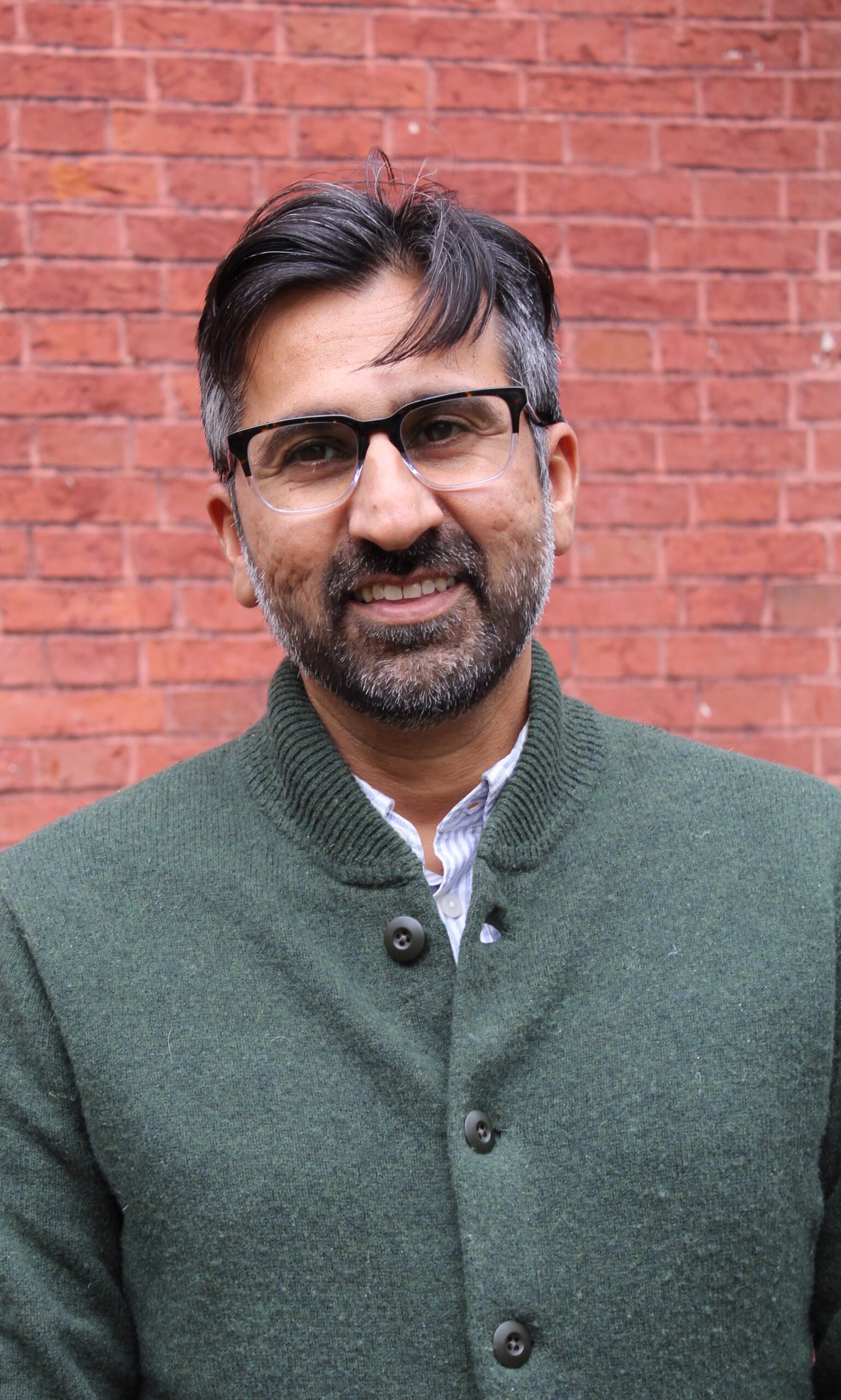Janmohamed: empathy through writing
December 3, 2021
 Amira Oguntoyinbo
Amira OguntoyinboFor Visiting Assistant Professor of English Zahir Janmohamed, good literature serves as a vessel for ambiguity. Janmohamed aims for his students to explore the texture, contradictions and uncertainties of their lives through text.
“I’m not really interested in certainties, and I’m also not interested in cleverness,” Janmohamed said.
This semester, Janmohamed is teaching an introductory fiction workshop as well as an advanced personal essay class called “The Personal (Essay) is Political.” In both classes, Janmohamed asks his students to examine their ties to a broader social context.
“I want students to think about the ways in which the self can never be in isolation,” Janmohamed said. “How does the self intersect with culture, with the state, with society—with our colleagues, with our friends, with the texts that we study?”
In his teaching, Janmohamed draws upon his previous career roles in politics, international advocacy and writing. Before coming to the College, Janmohamed served as Amnesty International’s Advocacy Director for the Middle East and North Africa and worked as a senior congressional aide in Washington D.C. He returned to school and received a Master of Fine Arts (MFA) in Creative Writing from the University of Michigan in 2020.
In 2016, Janmohamed co-founded the James Beard Award-nominated podcast “Racist Sandwich,” which is a side door into discussions of race, food, class and national identity. While living in Portland, Ore., the whitest city with over 500,000 residents in the U.S, Janmohamed found that food was a lens through which he could examine contemporary social issues.
“Why is it that my parents, when they go out for Italian food [and] the bill comes to like $80, they’ll gladly pay it, but if an Indian meal comes to $80, they’ll complain? Why do we devalue our own cuisine, but we think that an Italian meal or a French meal is worth more money?” Janmohamed said. “Food was a way for me to tackle those difficult conversations.”
If the political world is always a theme in Janmohamed’s teaching, then writing acts as a way to build empathy by diving into the ambiguities of life.
“The goal of writing is to try to move a reader: it could be moving you to humor, it could be moving you to sadness, toward happiness,” Janmohamed said. “I think a really good character, when a novel is working really well, I forget the architecture of the book because the characters are so real. It’s like a good costume. A good costume shouldn’t draw attention to itself.”
Janmohamed believes that the greatness of fiction lies in the ways it can integrate aspects of a universal human experience––using things we know and love––into wildly different social contexts.
“What I love about literature is, there’s a book that I have on my shelf called ‘Frankenstein in Baghdad,’ which imagines, ‘what if Frankenstein had been in Baghdad?’ That’s the cool thing about literature,” Janmohamed said. “Literature allows these new possibilities.”

Comments
Before submitting a comment, please review our comment policy. Some key points from the policy: